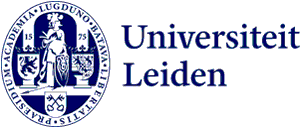
Advocating for Human rights in Brussels: catching up with Calum Thomson
Many students see themselves working at an NGO in Brussels after graduation. Alumnus Calum Thomson (26) is doing just that. In 2021 Calum started working at the Eastern Partnership Civil Society Forum (EaP CSF): a platform aimed at promoting European integration, facilitating reforms and democratic transformations in the six Eastern Partnership countries – Armenia, Azerbaijan, Belarus, Georgia, Moldova and Ukraine. Countries whose international relations are currently very much in the news. What is it like working there, which steps led him to this point and what advice does he have for current students of International Studies?
'I started International Studies back in 2014 and I graduated in a totally different political reality in 2017. In International Studies I chose Russia and Eurasia as my area, I completed a master’s in International Relations at Leiden University in 2018. I eventually managed to find a job closely related my area in Brussels, where I have lived since late 2019.
My job title is Administration and Statutory Affairs Manager. The EaP CSF is a non-profit, non-partisan membership organisation, funded by the EU. It brings together civil society organisations from across the EU and the six partnership countries. We promote European integration, human rights and the facilitating of reforms and democratic transitions in these six countries.
What I find most interesting about my job is that I get to interact with such a diverse range of committed, impressive and knowledgeable civil society activists on a daily basis. It is really inspiring, especially when we see positive reforms take shape as a result of their hard work. However, some of our members are also putting themselves at great personal risk to speak truth to power, it is a testament to their bravery, but it also shows that we still have a long way to go.'

Which skills and experiences from International Studies do you still apply in your current position?
'The aspects of International Studies that probably helped me most are the language element, presentation skills and studying abroad. The language element of the course, and particularly the fact that this was offered from beginner level, was really influential in my decision to apply for International Studies. Comparable degrees in the UK often required B1 or higher in the specific language you wanted to study and an official qualification to prove this. Not an easy task if you cannot study the language you want to learn at school, or do not have the luxury of a private education, native speaking parent, or tutor. I went to a state school and I only had the option of studying French, so it really was not possible for me to study Russian along with politics, history, culture and all the other benefits of International Studies in the UK.
Presentation skills are a must in many jobs, including mine. Presentations were not my favourite thing to do during my studies, and some were downright painful, but honestly these are real learning experiences and because we had to do so many in different International Studies courses, it gives you a lot of opportunity to practice in front of different groups of people which boosts your confidence in the future.
I studied abroad in Moscow during my 3rd year discretionary space, it was actually quite a challenging experience but looking back I did learn a lot from it, meeting and speaking to ordinary Russian people was invaluable for improving my understanding of the country.'
Would you say a master’s is a necessity to start a career?
'After graduating, I went directly onto the master’s programme in International Relations. I would say that just for getting an internship in Brussels, let alone a job, a master is probably a necessity. However, relevant work experience in the form of internships, volunteering opportunities (I did two voluntary election observation missions in Armenia and Moldova) or other jobs can make up for that, two of my friends in Brussels without master degrees have great jobs here because of good work experience. In my master’s we really focused on the security and conflict angle of international relations, in the longer term I would like to explore career options in this sphere, maybe at NATO.'
What advice do you have for current students?
'As someone working full time now, I would say make the most of your long holidays and all of your free time with friends. International Studies, and Leiden University in general, gives you the opportunity to meet so many wonderful people. As tempting as sleeping all day on Saturday is, go out, see things, have a great time.'
Finally, what career advice do you think is important to know?
'My advice is not to give up. The pandemic has really exacerbated the flaws in our labour system and I struggled for a year to find any relevant paid internship experience, most organisations simply stopped hiring. It was an incredibly tough time and it was difficult to keep my spirits up after sending over 150 applications and only managing to reach the interview stage on four occasions. For many positions, I did not even receive any confirmation that they had received my application. It is unfortunately the case that even if you think you are perfect for a position, and that you’ve crafted the perfect cover letter, that you may simply not hear anything back. Do not be disheartened, just move on to the next one.'
